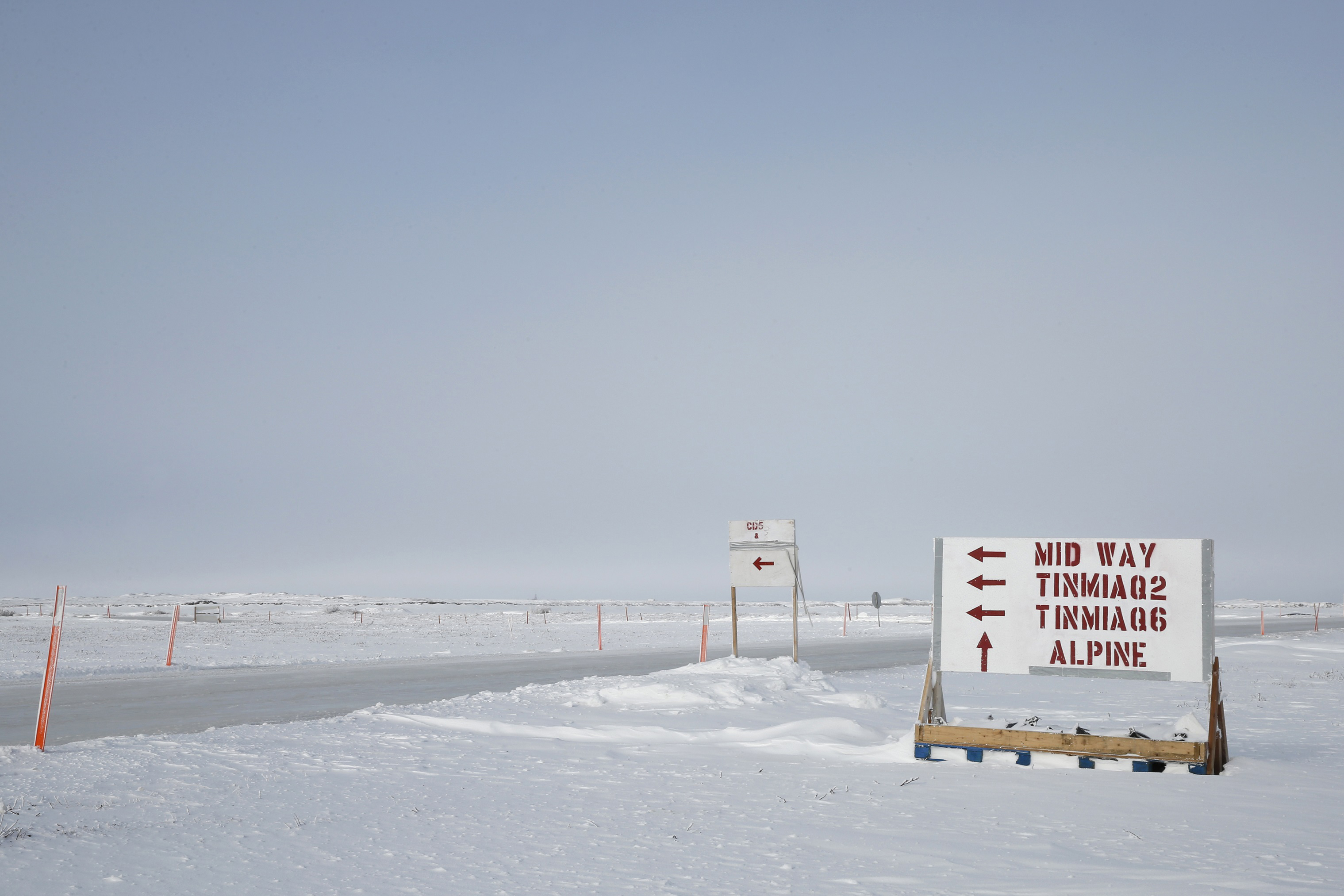Changes to plans for a huge new Arctic Alaska oil project prompt more environmental review
The new proposal ditches plans for an artificial island in the Beaufort Sea.

An alteration in the plan to develop what is expected to be the westernmost producing oil field on Alaska’s North Slope has prompted federal regulators to take a new look at the project’s environmental impacts.
The U.S. Bureau of Land Management announced on Jan. 7 that it is launching a supplemental draft environmental impact statement on the ConocoPhillips Alaska Inc.’s master plan for its huge Willow project in the National Petroleum Reserve in Alaska.
In response to comments received on the draft EIS issued in August, ConocoPhillips has dropped its plan to build an artificial island in the Beaufort Sea to serve as a staging ground to position modules in and around the oil field. Instead, the company is proposing to use an existing North Slope dock and to build ice roads to transport the modules, the BLM said.
The supplemental draft EIS, expected to be released this spring, will examine that and other alterations of ConocoPhillips’ plan, the BLM said. The agency’s top Alaska official said the changes show that the public review has already been productive.
“It’s exciting to see the level of public involvement in determining responsible development of our natural resources in Alaska,” BLM Alaska State Director Chad Padgett said in a statement. “Since the new module transport option and other project changes are outside the scope of the original analysis, developing a supplemental draft EIS affords the public an opportunity to provide input on the revised plan as they did on the original draft.”
The idea of building an artificial island troubled the city and tribal officials and citizens in Nuiqsut, the Inupiat village that is closest to the proposed development.
Residents expressed concerns about a new island in the Beaufort Sea causing problems for traditional hunting of marine mammals, said Patty Sullivan, a ConocoPhillips spokeswoman. Dropping the island plan also reduces the amount of gravel the company will need to build the project, she said in an email.
They also said they worried about the effects of island erosion on the area’s marine habitat, said Eric Tausch, a BLM spokesman.
Willow is a major new oil find on the North Slope, a project that taps into the previously overlooked Nanushuk geologic formation and is expected to anchor a series of new fields in the western North Slope.
ConocoPhillips announced the Willow discovery in 2017. It is believed to hold 450 million to 800 million barrels of recoverable oil, according to ConocoPhillips’ most recent estimate, announced at a conference in Anchorage in November. Expected to have peak production of 130,000 barrels per day during a 30-year production life, according to the draft EIS.
Sullivan said the launch of the supplemental EIS does not affect the ConocoPhillips’ timeline for Willow’s development, Sullivan said. The company had already pushed back the schedule independent of the decision to drop the artificial island plan, she said.
First oil is now estimated in 2025 or 2026, a year later than was forecast in the draft EIS, she said.
“The reason for the change is our decision to gather another round of appraisal data in the 2020 winter season. We believe we need additional information to better understand the geology and reservoir characteristics of the formation before making a final investment decision,” she said in an email.
The new supplemental EIS will extend the BLM’s expected timing of a record of decision on the project, said agency spokesman Tausch. That decision had been expected this spring, but now spring is the target for kicking off a 45-day public comment period on the supplemental draft EIS, he said.
In addition to its new ideas for moving oil-field modules, Tausch said, ConocoPhillips has made some other substantive changes to its Willow development plan. The company is now proposing a freshwater reservoir and construction of a boat ramp, he said.